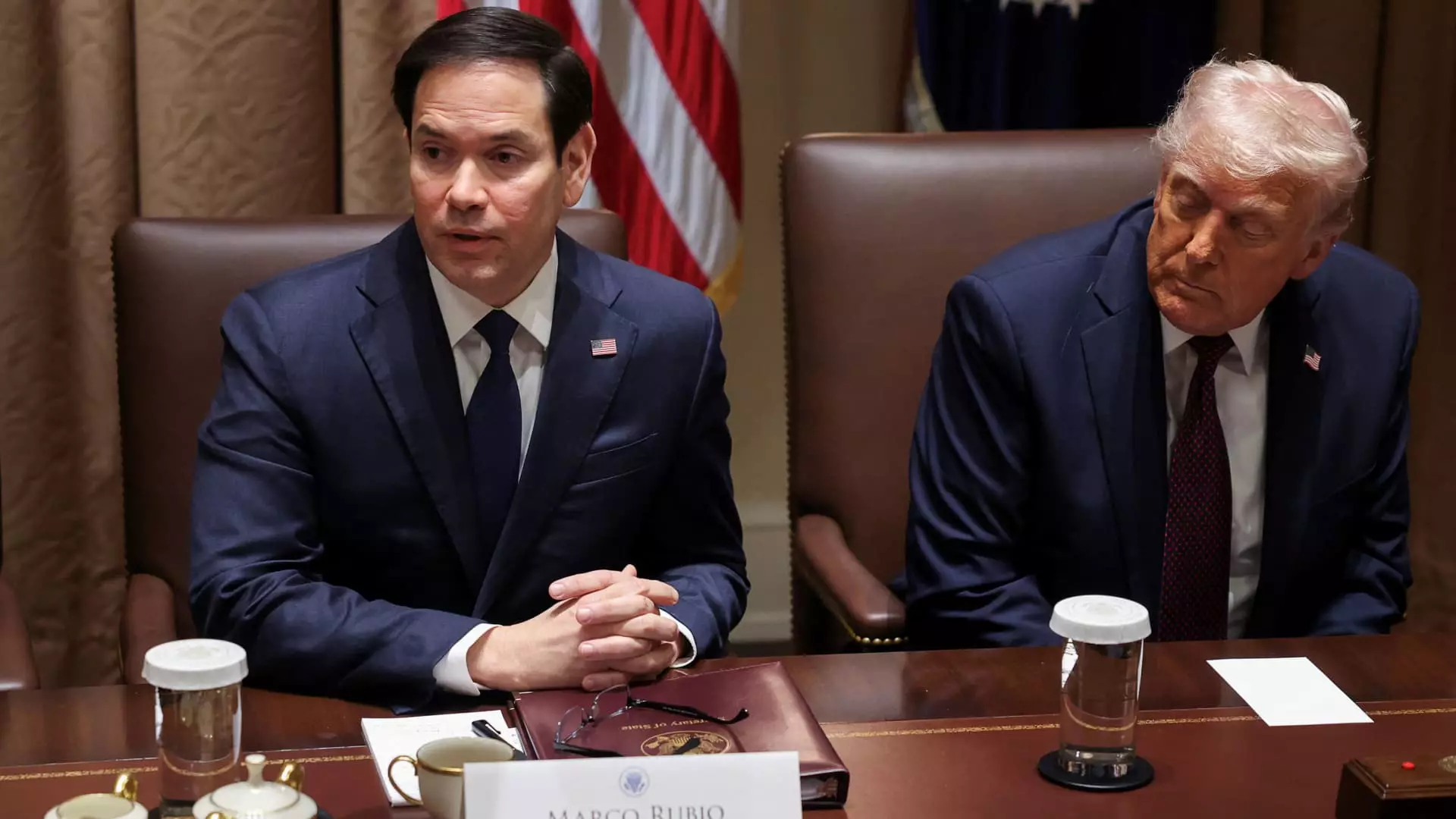In an alarming turn of events, a recently unearthed draft executive order hints at the potential dismantling of the U.S. State Department as we’ve known it under the Trump administration. This 16-page blueprint is not simply a bureaucratic tweak but a radical overhaul aimed at reshaping the bedrock of American diplomacy. By proposing the closure of embassies across Southern Africa and the termination of critical bureaus focused on democracy and human rights, this order signals a troubling pivot away from the values that have historically underpinned U.S. foreign policy. It reflects a doctrine rooted squarely in the ideologies of nationalism and exclusion, sacrificing the tenets of diplomacy on the altar of an isolationist “America First” agenda.
Consolidation or Catastrophe?
The draft order’s proposal to consolidate regional bureaus into four “regional corps” raises significant questions regarding America’s commitment to global leadership and involvement. Reducing the diplomatic apparatus to bulks of conglomerated regions—Eurasia, the Middle East, Latin America, and the Indo-Pacific—strikes me as a reckless gambit. Is it genuinely efficient or simply an ill-advised shortcut that compromises our global presence? The bureaucratic changes seem less about effectiveness and more about constriction—a blatant attempt to align U.S. foreign policies with a narrow vision that risks alienating nations that are crucial to securing peace and promoting human rights.
The elimination of non-essential embassies in Sub-Saharan Africa signals a disturbing trend toward detachment from regions most in need of sophisticated diplomatic engagement. Diplomacy should be viewed as a critical tool in fostering stability and goodwill; cutting off ties, especially in developing regions, communicates a detrimental message of abandonment and negligence.
A Departure from Democratic Ideals
This draft order’s explicit dissolution of offices devoted to climate issues, women’s rights, and humanitarian efforts represents a staggering regression for U.S. diplomacy. What does it say when the State Department, an institution built on the foundation of global cooperation and advocacy, decides to eschew the very ideals of democracy and human rights? The axing of these pivotal areas is not merely bureaucratic restructuring; it is a conscious decision to sideline pivotal issues that define contemporary global discourse.
In a time fraught with challenges such as climate change and humanitarian crises, withdrawing support for these fundamental areas may be one of the administration’s most severe missteps. Instead of acting as a beacon of hope and justice, the United States risks becoming a pariah on the world stage, leaving many vulnerable populations without advocates or resources.
A New Breed of Diplomacy?
The proposed hiring practices outlined in this draft order mark another seismic shift in how the U.S. selects its diplomats. Moving away from the longstanding Foreign Service Officer Test in favor of assessments that gauge alignment with the president’s foreign policy vision introduces a deeply problematic paradigm. This system prioritizes loyalty over competency, steering the U.S. foreign service into an era of favoritism and, potentially, incompetence. The integrity of our diplomatic corps should not depend on adherence to fleeting political whims but rather on a steadfast commitment to service, knowledge, and universal moral standards.
Furthermore, the optional buyouts for personnel unwilling to align with this new docile structure raises ethical concerns. Offering separation deals implies a willingness to cultivate a uniformity of thought, suppressing diversity in diplomatic approaches. A strong diplomatic presence requires a mosaic of perspectives that reflect the complexity of global relations.
The Upheaval’s Broader Implications
Tracking the timeline of these proposed changes—that a “full structural reorganization and transition” should be completed by a mere October deadline—reveals an unsettling urgency. This hastiness in implementing destabilizing changes around the world hints at a broader ideological battle that seeks to redefine the role of the United States on an international scale.
In essence, it’s akin to tossing away the very blueprint that has enabled the U.S. to engage with allies and adversaries on principles of mutual respect and shared concerns. The implications of such an overhaul could transform the U.S. diplomatic landscape, not just for current personnel, but for generations to come, shaping an era marked by retrenchment and a significant retreat from global responsibility.
These proposed changes aren’t merely administrative; they represent a clear ideological shift towards a narrower, less compassionate view of the world, gravely undermining the United States’ historical role as a leader in safeguarding democratic values globally.

